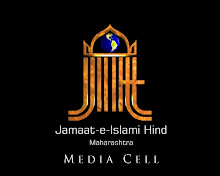http://blogs.outlookindia.com/default.aspx?ddm=10&pid=2257&eid=5
BLOGS / Sundeep Dougal
Free Speech V/s Hate Speech
In the NDTV show Walk the Talk in March 2009 Dr Zakir Naik was described as the “rockstar of tele-evangelism”:
“…but surprise of surprises, he is not preaching what you would expect tele-evangelists to preach. He is preaching Islam, modern Islam, and not just Islam but his own interpretation of all the faiths around the world.”
In February this year, the Indian Express, ranked him 89th on its list of the most powerful Indians in 2010, ahead of Nobel laureate Amartya Sen:
The evangelist, who wears suits and ties and preaches Islam in English, is a powerful orator. His sermons on Peace TV-English boast of a viewership of 100 million. The channel is aired in more than 125 countries and was launched in North America last year. Last year, he launched Peace TV Urdu, which has 50 million viewers. In the last 14 years, Naik has given 1,300 public talks, including 100 in 2009.
Power punch
Naik’s 10-day “peace conference” last November in Mumbai was attended by a million people. His lecture at the same conference was attended by around 2 lakh, including former Malaysian deputy prime minister Anwar Ibrahim.
What next
He plans to launch Peace TV-Bangla by December and a news channel by 2012 or 2013.
He then recently appeared in NDTV's We The People show as a participant in March, and while he was apparently unhappy with the reception he was given, many thought that he had been treated with excessive reverence. He expanded on his experience in these videos. In the words of one fan, "He cleared informed there were 75 DVDs released of top American analysts and professors who proved that 911 was inside job."
On Friday, Britain announced that it would not allow Dr Zakir Naik to enter Britain to deliver a series of lectures he was due to give in London and the city of Sheffield in northern England. Conservative Home Secretary Theresa May said in a statement, without elaborating:
“Numerous comments made by Dr. Naik are evidence to me of his unacceptable behaviour”
The following has been cited as one of those "numerous comments":
“Beware of Muslims saying Osama Bin Laden is right or wrong. I reject them … we don’t know.
“But if you ask my view, if given the truth, if he is fighting the enemies of Islam, I am for him. I don’t know what he’s doing. I’m not in touch with him. I don’t know him personally. I read the newspaper.
“If he is terrorising the terrorists, if he is terrorising America the terrorist, the biggest terrorist, every Muslim should be a terrorist.”
Writing in the WSJ, Sadanand Dhume contrasts the way Zakir Naik is treated in India and points out that only a handful of journalists—among them Praveen Swami of the Hindu, and Khushwant Singh—have questioned Dr. Naik's views—and wonders whether it has something to do with how "India accords extra deference to allegedly holy men of all stripes". But he also notes:
...most of India's purportedly secular intelligentsia remains loath to criticize Islam, even in its most radical form, lest this be interpreted as sympathy for Hindu nationalism.
And goes on to argue, correctly of course:
Unless this changes, unless Indians find the ability to criticize a radical Islamic preacher such as Dr. Naik as robustly as they would his Hindu equivalent, the idea of Indian secularism will remain deeply flawed.
Mr Dhume's piece appeared on June 20 in which he also argued:
It helps that Indians appear to have trouble distinguishing between free speech and hate speech. In a Western democracy, demanding the murder of homosexuals and the second-class treatment of non-Muslims would likely attract public censure or a law suit. In India, it goes unchallenged as long as it has a religious imprimatur. However, create a book or a painting that ruffles religious sentiment, as the writer Taslima Nasreen and the painter M. F. Husain both discovered, and either the government or a mob of pious vigilantes will strive to muzzle you. [Read the full WSJ piece: The Trouble With Dr Zakir Naik]
But today's Indian Express carries an editorial which takes just the opposite view:
Words must be fought with words alone, not clumsy state action. Such provocation is inevitable in the complex, variegated democracies we live in — in both India and Britain, we could bump up against people whose positions worry us, and we are free to debate, mercilessly mock, or ignore that opinion. But to declare it unsayable is highly dangerous. Salman Rushdie, who has himself been singed by such logic, has warned Britain of the danger of walling off religious matters, saying that “the defence of free speech begins at the point when people say something you can’t stand.” Zakir Naik talks of ideas that some might abhor, but some others take all too seriously. Not permitting open discourse is to constrict the free play of disagreeement and disputation. [Read the Indian Express editorial: Talk is Cheap]
While words definitely need to be fought with words, and while sites like NewAgeIslam have been waging a heroic battle, and while even the likes of Darul Uloom Deoband and other mainstream Muslim bodies have spoken out and even issued fatwas against Naik, others argue that all of this is very miniscule and hardly effective given the large audience and viewership his TV channels command. Do you think there is a wide enough engagement or a platform to counter the reach of Dr Naik's Peace TV? How else should his words be engaged with? Do you think Britain did the right thing by denying him the visa? How should India and Indians tackle the challenege that Zakir Naik obviously poses?
Wednesday, June 23, 2010
Subscribe to:
Post Comments (Atom)

No comments:
Post a Comment